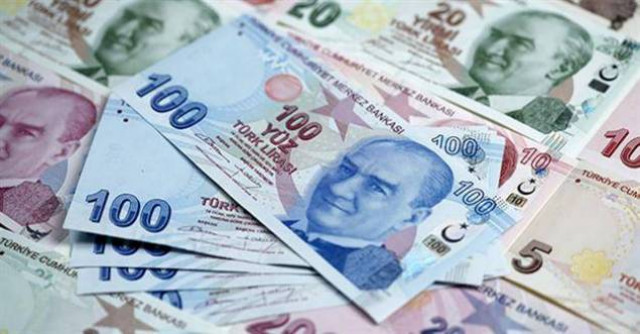Turkish lira surges after Erdogan’s son-in-law quits
Investors view change as sign officials are ready to reassess policies to halt lira’s slide

Turkey’s lira surged to a 5% gain against the dollar on Monday after President Recep Tayyip Erdogan’s son-in-law gave up his finance minister brief following the appointment of a new central bank chief.
Investors read the resignation of Berat Albayrak - the powerful husband of Erdogan’s elder daughter Esra - and of the central bank’s Murat Uysal during a chaotic weekend as a signal that officials were ready to reassess their much-criticised policies in a bid to halt the lira’s historic slide.
The Turkish currency has shed about a third of its value against the dollar this year and became the world’s worst performer last month. It was trading at close to eight to the dollar on Monday after opening the day around the 8.40 mark.
“I think we are seeing a purge of Albayrak and his team,” Bluebay Asset Management economist Timothy Ash remarked.
Economists estimate that Turkey has burned through more than $100 billion in a wasted effort to prop up the lira since the start of last year. The failed defence was maintained while the central bank kept following Erdogan’s wishes not to raise the main interest rate.
Higher rates make currencies more attractive by increasing the return on local investments and would normally bolster a currency. Erdogan instead believes that they cause inflation and ousted a previous central bank chief who was raising them in 2018.
Capital Economics said the twin departures “could be a hint of a shift back towards more orthodox policymaking at the central bank”. Albayrak resigned in a Sunday night statement on Instagram that caught some top Turkish officials by surprise.
“After serving in ministerial posts for nearly five years, I took the decision not to continue my duty (as finance minister) due to health issues,” Albayrak wrote.
It was still not clear if Erdogan will accept his resignation. Interior Minister Suleyman Soylu’s resignation earlier this year was not approved by the Turkish leader and Soylu remains in his post. Edrogan did not comment on the sudden changes at the top of Turkey’s two most important economic posts in wide-ranging remarks on Monday.
Analysts and Turkish media speculated that Albayrak’s resignation was prompted by his opposition to former finance minister Naci Agbal’s appointment on Saturday as the new head of the central bank.
Agbal subscribes to mainstream economic theory on interest rates. The central bank “will decisively use all policy tools in pursuit of its price stability objective,” Agbal said in a statement on Monday.
He added that the bank’s current approach would be reviewed ahead of the next monetary policy committee meeting on November 19.
Albayrak’s term as finance minister coincided with a currency crisis in 2018 that was followed by the lira’s plunge to historic lows against both the dollar and the euro this year.
He drew the public ire in August by downplaying the lira’s slide. “Are you paid in dollars?” he asked in a live television interview.
“Do you have any business in dollars?” he demanded in comments that went viral on social media at the time.
The 42-year-old has frequently accompanied Erdogan on foreign trips and policy meetings with world leaders.
The central bank raised its benchmark rate for the first time in two years in September - from 8.25 to 10.25. But the lira fell to new lows after the bank surprised investors by holding the main rate steady last month.
Published in The Express Tribune, November 10th, 2020.
Like Business on Facebook, follow @TribuneBiz on Twitter to stay informed and join in the conversation.



















COMMENTS
Comments are moderated and generally will be posted if they are on-topic and not abusive.
For more information, please see our Comments FAQ